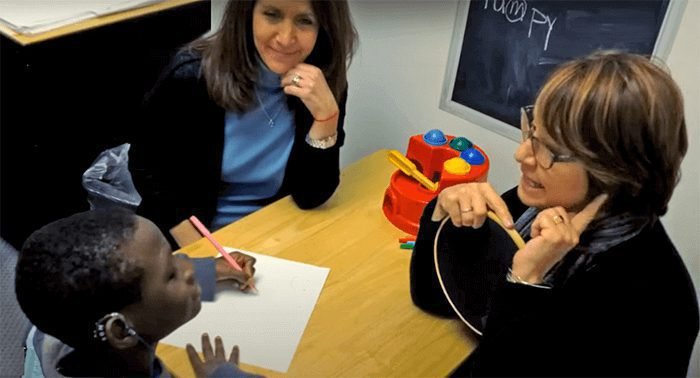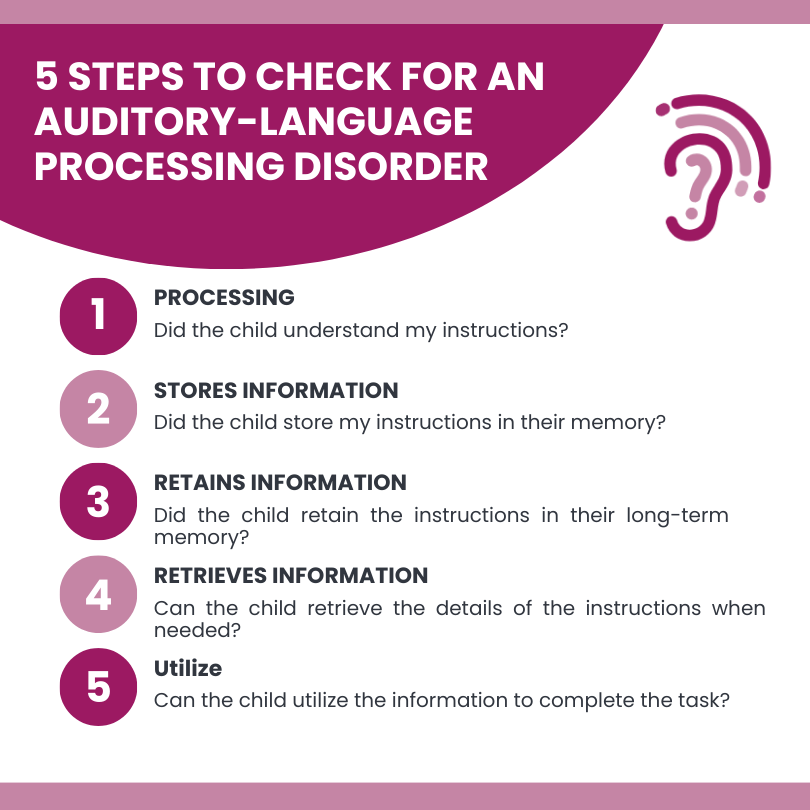
Announcing
The ListenLoveLearn Auditory-Language Processing Evaluation Center in Santa Monica
ListenLoveLearn is now offering Auditory-Language Processing Evaluations in Santa Monica.
What Is An Auditory Processing Disorder (APD)?
Children with APD are often misdiagnosed with other disorders such as ADD (Attention Deficit Disorder) ADHD (Attention Deficit Hyperactivity Disorder). Untreated, APD can drastically distort social and educational experiences of every kind. The child retreats into his own head. Disinterest in the surrounding social world that they are unable to reasonably sort out coupled with problems communicating and learning appears to parents, teachers, and doctors alike as an attention problem. To the inexperienced observer, the child’s moodiness, tantrums, social isolation, and peer group clumsiness seem like a behavioral problem.
Although these things can all be symptoms of attention and developmental disorders, they may also be symptomatic of APD which is an inability to develop accurate listening skills caused by the brain’s incomplete or unsuccessful processing of auditory information. A child with APD may have trouble with attention, but it’s because they can’t listen accurately, not because they can’t pay attention. While APD can co-exist in a child with ADD, ADHD or other developmental difficulties, unlike ADD, etc. children with APD only are not usually hyperactive. They may engage in the impulsive behaviors seen in children with those other developmental disorders due to their inability to understand and be understood. The lack of an inappropriate diagnosis and therefore inappropriate intervention causes the lack of progress and increased frustration for the child.
The process of experiencing sound is a two-stage phenomenon.
First, sound vibrations are collected by the outer ear, funneled to the inner ear where they become physical vibrations, and then sent on to the cochlea where they are transformed into electrical impulses. Then these impulses travel along the eighth cranial nerve into the brain.
Through the travel of the auditory information along the auditory pathways beginning from the hearing system and traveling to the right and left hemispheres of the brain, sound impulses are put through a highly sophisticated and detailed battery of analyses and examination contoured by memory, instinct, thought, and various voluntary and involuntary reactions into the sensation we experience as hearing. It’s a complex process – one that simultaneously incorporates multiple locations of brain geography, a system of “feedback” to the cochlea to help narrow the focus of hearing, and a myriad of other analyses, impulses, gateways, and other functions and processes. All this happens in fractions of seconds.
Most people recognize that birth defects, infections, blockages, eardrum punctures, tinnitus from loud noises, and various other things can adversely affect the middle and inner ear parts of the hearing equation. But a lot can also go wrong during a pathway journey along the eighth cranial nerve through the CANS relay stations and inside the Auditory Cortex. APD is a condition that affects that interior trip to the Auditory Cortex and the processing stage that transforms hearing into listening within the Cortex itself.
What isn’t APD?
Since APD symptoms and treatments cover several different specific listening difficulties and have a number of different possible causes, let’s have a look at what APD is not.
APD Is Not Hearing Loss.
Hearing loss is the result of problems in the middle ear and inner ear. Anything that goes wrong along the chain of membranes, bones and organs that make up the middle and inner ear can cause hearing loss. Fluid build-up, infection, scarring or blockage in the middle ear, birth defects affecting the middle or inner ear’s anatomy, damage to the hairs within the cochlea – these are all conditions that can cause a temporary or permanent loss of hearing. Some of these conditions can be screened and initially diagnosed by a pediatrician or an otolaryngologist (what used to be called an “ear, nose, and throat” doctor). The type and severity of the hearing loss needs to be gauged by an audiologist. Depending on how severe the hearing loss is and what caused it, doctors, along with an audiologist and a speech-language pathologist, and of course, the parents can decide what course to take. Different types and severities of hearing loss respond to different treatments. Hearing aids, prescriptions, therapy session, corrective surgery and surgical implants can each be used to deal with different kinds of loss of hearing.
APD Is Not ADD, ADHD, Or ASD.
Like a child with ADD, ADHD, or ASD a child with Auditory Processing disorder can be:
Mentally and emotionally exhausted at the end of the day
Struggling to understand at such a young age is a grueling workout.
Irritable
Feelings of helplessness and an inability to communicate breed anxiety and frustration.
Displaying signs of low self-esteem
First and foremost, children blame themselves when things aren’t right.
Negative about school.
“It’s just too hard,” becomes the mantra of a school-age child with APD.
Seen as immature for their age
Children that are cut off from listening tend to stay put emotionally.
APD Cannot Be Treated With Drugs Or Surgery.
The symptoms of ADD and the family of attention based disorders are often successfully treated with prescription drugs. In many cases hearing loss responds well to the recommended treatments like hearing aids, surgery and the miraculous evolving technology of cochlear implants. Thus far there is no known prescription or medical procedure that lessens the severity of APD.
Correct diagnosis and targeted interventions are the recommendations to follow to successfully help a child who is struggling with APD.
While every child develops in their own time and at their own pace, there are a few signs you can watch for to see if their receptive and expressive language is developing or if there are potential gaps.
Language Challenges Which May Be a Result of Auditory Processing Disorder
RECEPTIVE LANGUAGE
Often says “huh” or “what?”
Asks people to repeat what they said, but hearing is normal
You have to look them in the eye to give instructions
Asks the teacher, “what am I supposed to do again?”
Needs constant clarificationCan only follow one direction at a time
May require more time to process spoken wordsCannot recall key details from verbally presented material
Can’t follow conversations
EXPRESSIVE LANGUAGE
Receives information but can’t respond
Has difficulty finding the right words when talking and may use placeholder words like “um”Can’t put words together
Doesn’t have complete thoughtsHas difficulty sequencing events from a life event or story
May use vocabulary below the level of other children the same age
Poor expression
Tone doesn’t match words

